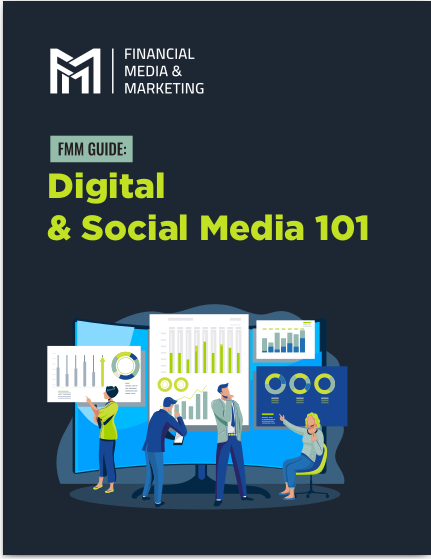Key Takeaways
-
Your digital presence defines your professional reputation just as much as word-of-mouth does.
-
In 2025, actively managing what search engines, social platforms, and content aggregators say about you is critical to establishing credibility.
Understanding the Modern Definition of Reputation
In the past, reputation was based primarily on what people within your professional circle said about you. But in today’s digital-first world, your reputation is shaped by what the internet presents about you to anyone who searches your name. From potential clients to hiring managers, your online footprint now acts as the first impression—and often, the lasting one.
A Google search result, a LinkedIn profile, or an outdated article with your name on it can influence decisions about your credibility before you even get a chance to speak.
Why Search Engines Are the New Gatekeepers
Search engines control access to information about you. When someone looks you up, what they find within the first few seconds can either elevate or diminish your professional value. In 2025, algorithms filter, rank, and summarize your professional identity based on data scraped from:
-
Social media posts
-
Online reviews
-
Published content (articles, blogs, videos)
-
Mentions on third-party websites
-
Forum or comment contributions
This aggregation becomes your digital reputation. Even outdated or irrelevant results can leave lasting impressions if they appear prominently.
The Critical Role of Digital Consistency
Digital consistency refers to having a unified, credible presence across all channels. Inconsistent job titles, mismatched bios, or scattered messaging can make you appear less reliable or less engaged. You must ensure that across every platform:
-
Your name appears exactly the same
-
Your title, expertise, and credentials are consistent
-
Photos and bios are professional and updated
-
Messaging aligns with your field of expertise
Consistency isn’t about perfection—it’s about clarity. A consistent message reassures both algorithms and human readers that you are who you say you are.
How Online Reviews Influence Professional Trust
Reviews are no longer limited to restaurants and products. In professional industries, client testimonials, peer endorsements, and third-party evaluations contribute to your credibility.
In 2025, people trust verified online feedback almost as much as personal recommendations. Positive reviews and star ratings can:
-
Increase visibility in professional directories
-
Boost rankings in search engines
-
Reinforce authority in your industry
At the same time, negative or outdated reviews can significantly damage perception, even if your service or qualifications have since improved. Actively requesting and managing feedback is no longer optional—it is an essential reputation strategy.
Content as Your Reputation Anchor
Creating and distributing your own content is one of the most powerful ways to take control of your narrative. Whether it’s publishing thought leadership, hosting webinars, or sharing insights on trends in your field, the content you produce defines your position in the market.
Professionals who post consistent, valuable content tend to:
-
Rank higher in search engines
-
Attract better professional opportunities
-
Build long-term credibility and authority
This content acts as a timestamp of your evolution. It shows not only where you are now, but how you’ve grown, learned, and contributed over time.
Managing Old, Inaccurate, or Irrelevant Results
The internet rarely forgets. Old blog posts, outdated bios, or unrelated mentions may still surface when someone searches your name. In 2025, professionals use digital hygiene practices to keep their online reputation accurate and current.
Here are a few key steps:
-
Perform regular searches of your name to monitor results
-
Use reputation management tools to suppress or update old content
-
Reach out to site owners to correct or remove outdated information
-
Create new, relevant content to replace stale results in search rankings
These practices help ensure the first impression people get is the one you intend to project.
Social Media: Asset or Liability?
Social platforms serve as both amplifiers and archives. What you post, like, or comment on is cataloged and, in many cases, discoverable by others.
In 2025, employers, clients, and collaborators routinely review social profiles before making decisions. Social media should reflect your professional values, not undermine them.
To maintain credibility:
-
Set privacy settings where appropriate
-
Avoid engaging in divisive or off-brand conversations
-
Post with intention and awareness of audience perception
-
Keep profiles updated and relevant to your current professional identity
Your presence doesn’t need to be sanitized, but it does need to reflect maturity, insight, and alignment with your field.
SEO and Your Name: Why It Matters
Search engine optimization (SEO) isn’t just for businesses. In a professional context, optimizing how your name appears online can significantly influence the opportunities you attract.
Key elements to consider:
-
Use your full professional name consistently
-
Include your name in the titles and metadata of content you publish
-
Contribute to reputable sites that already rank well
-
Use keywords that align with your industry and role
The goal is to help search engines associate your name with your area of expertise. The better they understand your relevance, the higher you rank in search results.
Digital Reputation and Career Trajectory
Your digital reputation doesn’t just influence how others perceive you—it shapes the trajectory of your career. In 2025, companies, clients, collaborators, and media outlets research your online presence before initiating contact.
A strong digital presence can:
-
Lead to invitations for speaking engagements or publications
-
Result in unsolicited business or partnership opportunities
-
Encourage recruiters to reach out to you
Conversely, a weak or negative online presence may prevent you from being considered at all. Silence online is often misread as inactivity or lack of relevance.
How Much Does Reputation Management Cost in Time and Effort?
While you don’t need to spend a fortune to maintain your digital reputation, you do need to commit time and focus.
Here’s a general breakdown of effort required:
-
Weekly: 1-2 hours engaging on social media, responding to comments, sharing updates
-
Monthly: 2-4 hours creating or editing content, writing blogs, or updating profiles
-
Quarterly: 1-2 hours reviewing search results and removing or flagging outdated information
These small, consistent efforts add up. Within 6-12 months, you can significantly reshape and strengthen your digital footprint.
Who Needs Digital Reputation Management the Most?
While every professional benefits from digital reputation management, it is especially important for those in:
-
Legal, medical, and financial fields
-
Leadership or executive roles
-
Public-facing roles such as consultants, coaches, or educators
-
Entrepreneurs and business owners
In these roles, trust is paramount. Your digital persona becomes an extension of your real-world credibility.
Elevating Trust Through Transparency
People trust what they understand. When your online content, reviews, and professional bios tell a coherent, authentic story, trust builds naturally.
Ways to increase transparency:
-
Share behind-the-scenes content about your work process
-
Provide clear explanations of your professional journey
-
Address mistakes or changes directly if they appear online
In 2025, reputation is more about openness and consistency than flawlessness. Trust grows from clarity, not just polish.
When to Consider Professional Help
If you find your name linked to outdated, negative, or irrelevant content that you cannot remove or suppress on your own, it may be time to consult a professional reputation service.
These services specialize in:
-
Cleaning up search engine results
-
Promoting new, high-ranking content
-
Strategizing long-term content calendars
-
Monitoring brand sentiment over time
Although these services often involve cost, the potential return in career advancement or opportunity recovery can make them worthwhile.
Your Online Identity Is Your Professional Asset
Think of your online presence as a digital asset. In 2025, it carries weight in negotiations, interviews, partnerships, and public perception. Investing in it strategically pays dividends in visibility, influence, and opportunity.
Just like financial or intellectual assets, your reputation requires active maintenance. When shaped intentionally, it reflects your achievements, values, and future direction.
Own the Narrative Before Someone Else Does
The internet doesn’t pause to verify. It records, catalogs, and amplifies whatever appears first. That’s why taking control of your digital narrative now is critical.
Waiting until a problem arises can cost time, trust, and even revenue. Establishing a strong foundation today prevents you from playing catch-up tomorrow. In the era of instant information, your reputation isn’t just what people say—it’s what the internet knows.










